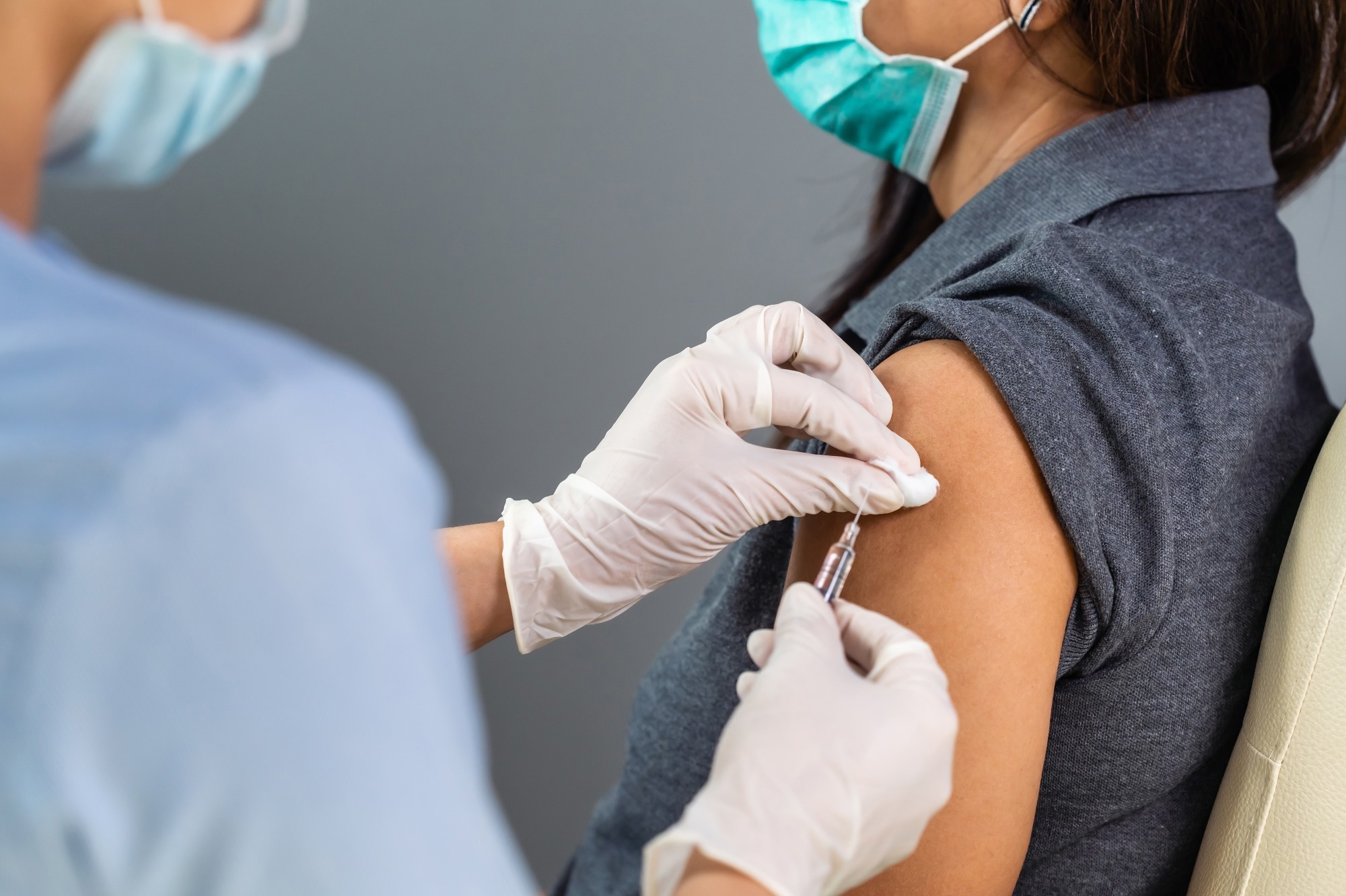The coronavirus disease 2019 (COVID-19) pandemic showed the immediate need to address the inequality in vaccine coverage. Equitable access to vaccines has been far from ideal despite calls from national organizations and scientists.
 Study: Pro-religion attitude predicts lower vaccination coverage at country level. Image Credit: BaLL LunLa/Shutterstock.com
Study: Pro-religion attitude predicts lower vaccination coverage at country level. Image Credit: BaLL LunLa/Shutterstock.com
Background
Important social-cultural factors, such as beliefs, societal norms, and religious influences, are not emphasized enough while addressing the issue of vaccine inequality.
Research has shown that trust or mistrust in science could influence the willingness to get vaccinated. However, it is unclear whether differences in trust in science across countries could account for the heterogeneities in vaccination rates across countries.
It has also been documented during the COVID-19 pandemic that stronger religious faith could lead to lower vaccine uptake. Religious people turned to their beliefs for psychological relief instead of scientific measures.
Another reason why such people delay or refuse vaccination is that they believe this to be against the will of God. Although religion and science do not always contradict, the tension between them with regard to the vaccination challenge is clear.
About this study
This paper argues that trust in science versus religion could explain the heterogeneity in vaccination rates across countries. Several high-quality public datasets were used to highlight the inequality in global vaccine coverage and analyze the role of trust in science or religion.
The COVID-19 Our World in Data (OWID) database was used to gauge vaccine coverage. It collects data from over 200 countries.
The 2018 Wellcome Global Monitor and the 2017–2022 World Values Survey Wave 7 were used for data on science-religion choice and science trust.
Additionally, to understand vaccine inequality due to income differences across countries, the authors used data on country classification data from the World Bank database. Overall, 214 countries covering 99% of the global population were included for further analyses.
Key findings
The science-religion-related variables, i.e., religious faith, science trust, and science-religion choice, at a country level, were closely linked to real-world vaccination coverage.
Countries with greater trust in science also showed higher vaccination coverage, although this relationship was surprisingly not very robust. Recent research has also analyzed this relationship at the individual level where trust in science positively affected vaccination-related behaviors.
Variables such as religious faith and science-religion choice were more robustly associated with vaccine uptake. It should be noted that although religious faith could hinder vaccine uptake, this is a complex issue because the teachings of religion are different and may vary by denomination.
Indeed some recent studies have shown an inverted U-shaped pattern of association between vaccine uptake and religious faith. Science religion could be a better predictor; for instance, countries with more people who trust science when science conflicts with religion are higher on vaccination coverage and faster on vaccination speed.
Broadly speaking, lower vaccination rates are associated with higher religious beliefs but this effect could be mitigated by greater support for vaccines by religions.
As an example, Islamic and Christian leaders have openly supported COVID-19 vaccination. Thus, vaccination intentions can be enhanced if endorsed by religious authorities.
The relationship between trust in science, religious faith, and vaccine uptake is quite intricate. While one can derive a crude prediction, the actual association between these variables, at the individual and country level, is complex and is governed by an array of other social-cultural characteristics.
These relationships are beyond the simple linear models that this paper studied. Future research should delve deeper into the potential higher-order interactions between these key variables of interest.
Conclusions
The vaccine inequality, as of mid-2022, was very high. This paper advocated for more attention to countries’ social-cultural characteristics, which could have an impact on vaccine hesitancy.
Here, science-religion-related variables were able to account for a part of the observed inequality, therefore, offering key insights in the fight against the COVID-19 pandemic.
In religious countries, vaccine hesitancy could be driven by the idea that it does not align with religious beliefs. The religious authorities could play a crucial role in elucidating how vaccination and religion may not be at odds.
More resources should be diverted to scientific education as it could lead more people to choose science should it potentially conflict with religion.
Raising the rate of vaccination is crucial to ending the pandemic and greater education and correct information can help us achieve that.